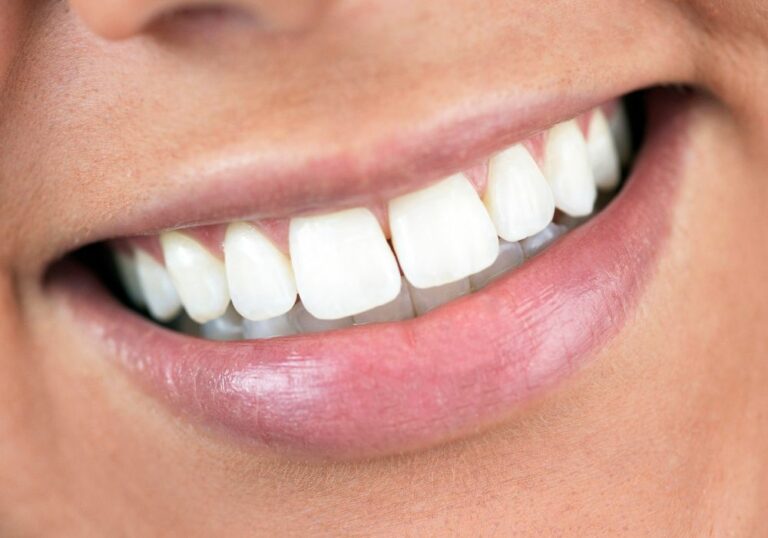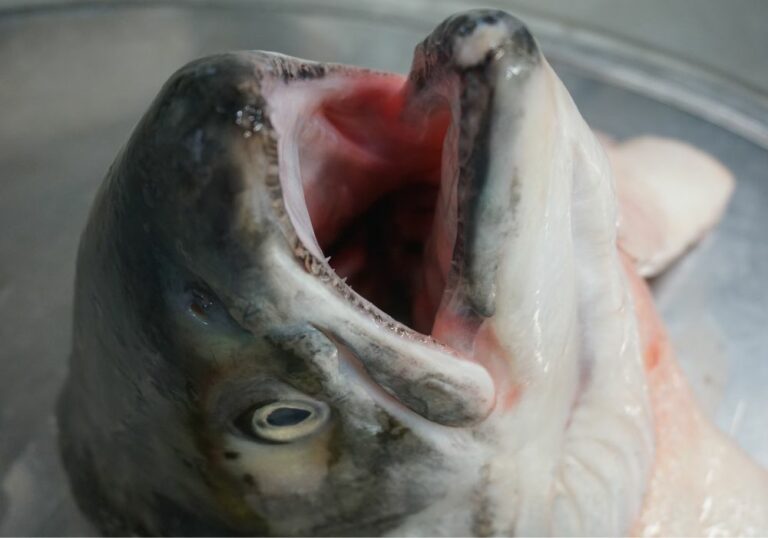Experiencing sudden, sharp pains between your teeth can cause alarm. While it may be nothing serious, this symptom could also indicate an underlying dental problem needing treatment. Getting to the root cause of toothaches between teeth is key to finding relief and preventing further issues.
What leads to sharp, random tooth pain between teeth?

Sharp toothaches affecting the area between teeth stem from various sources. Being aware of the possible reasons can help you identify the cause.
Food trapped between teeth
One of the most common triggers of pain between teeth is particles of food stuck in tight spaces between teeth. Hard, crunchy foods like popcorn kernels, seeds, nuts, candy, or chips are prime culprits as they can become firmly wedged between teeth when chewing.
As you bite down, the trapped food pushes into gums and other soft tissues between teeth. This irritates nerves and causes sudden discomfort ranging from mild to severe depending on the degree of impaction.
The pain is often temporary, subsiding once you dislodge the food particle by flossing or rinsing. However, leaving debris trapped can compress and damage gum tissue. It also promotes bacteria growth that raises your risk of cavities and infection in the area.
Teeth grinding and clenching
Grinding or clenching of teeth, also termed bruxism, places heavy pressure on teeth and surrounding structures. This can provoke pain between the teeth as the constant abnormal grinding forces aggravate ligaments, dental pulp, and muscles of the jaw.
Many people grind or clench their teeth subconsciously during sleep. Signs you may be doing this include dull ache between teeth and jaw soreness upon waking, excessive tooth wear, or partner reports of grinding noises at night. Managing life stress, getting a custom night guard from your dentist, and techniques to relax jaw muscles can all help reduce grinding and subsequent tooth sensitivity.
Gum disease
Gum disease occurs when bacterial plaque is allowed to build up along the gumline and between teeth. Early stage gingivitis causes red, swollen, tender gums that bleed easily when brushing.
As gum disease worsens into periodontitis, inflammation and toxins from plaque bacteria destroy ligaments and bone supporting the teeth. This damage makes teeth less stable in their sockets, and more likely to shift and cause sensitivity when chewing.
Practicing attentive oral hygiene with twice daily brushing and daily flossing can treat gum disease and stop inflammation before it leads to permanent harm. Regular professional cleanings also help reverse gum disease to restore healthy gums.
Dental cavities
Tooth decay eating away at the hard outer enamel layer of your teeth causes cavities to form. Over time, untreated decay can tunnel deep into inner tooth layers containing nerves and blood vessels. This nerve exposure provokes sharp pain when hot, cold, or sweet foods contact the damaged spot.
Small cavities limited to enamel may only cause mild discomfort. But extensive decay reaching inner dental pulp allows hot and cold sensitivity, and can lead to severe pulsing toothache at the site. To stop pain and further decay, dentists will clear out the diseased pulp tissue and fill cavities.
Cracked or broken teeth
Cracks in tooth enamel from chewing excessively hard foods, teeth grinding, or trauma allow hot and cold stimuli to penetrate deep dental layers normally protected. This can provoke sharp pain when biting down as inner nerves become irritated.
Meanwhile, a fractured or broken tooth is a severe issue where a segment of the tooth has chipped off. This necessitates prompt dental repair to stabilize the tooth, prevent infection of the pulp, and restore form and function.
Abscesses
A dental abscess signifies a pocket of pus and infection at the root of a tooth. Abscesses frequently arise when untreated advanced tooth decay or gum disease spreads deep within the tooth and tissues.
The abscess builds up pressure inside the tooth, causing throbbing pain and extreme sensitivity to hot and cold. Abscesses require draining by a dentist along with antibiotics to eliminate the bacterial infection. Left untreated, a dental abscess can destroy supporting jawbone and damage surrounding teeth.
Sinusitis
Congestion and inflammation of sinuses from allergies, colds, or other respiratory issues can provoke tooth sensitivity and pain in upper back teeth. This occurs because the roots of upper molars extend up near sinus cavities.
When sinuses get inflamed, they can put pressure on neighboring tooth roots. This may feel like sharp discomfort between upper teeth, sometimes mistaken for a dental problem. Treating the underlying sinus problem with decongestants, antibiotics, or nasal steroid sprays can provide relief in these cases.
When should I contact my dentist about tooth pain between teeth?

Many instances of quick, mild tooth pain between teeth resolve on their own once the source of irritation is gone. However, it is crucial to seek prompt professional care if you have:
- Severe toothache not relieved by over-the-counter methods
- Tooth pain persisting more than 2-3 days
- Gum swelling around painful tooth
- Tooth that is cracked, loose or damaged
- Unusual temperature sensitivity along with toothache
- Face swelling near painful tooth
- Injury to tooth and surrounding mouth tissues
These scenarios can indicate a significant underlying problem like an abscess, fractured tooth, or advanced tooth decay. Delaying treatment enables minor issues to escalate into major tooth infections, pulp death, and even tooth loss. Seeking emergency dental care can help resolve the cause and prevent it from worsening.
Home remedies to temporarily relieve sharp pain between teeth
Several natural home remedies may provide temporary relief of sharp discomfort between teeth until you can see a dentist:
- Salt water rinse – Dissolve 1 tsp salt in a cup of warm water and swish in mouth for 1 minute. The salt has antibacterial properties to freshen mouth and reduce infection risk, while warm temperature soothes inflamed gums.
- Dental floss – Gently floss between teeth to remove any food particles or plaque trapped between them that could be causing irritation.
- Over-the-counter pain medication – Anti-inflammatory pills like ibuprofen or acetaminophen can help reduce swelling and discomfort from gum inflammation or bruxism.
- Cold compress – Holding an ice pack or cold cloth against face near the painful tooth minimizes swelling and sensitivity.
- Avoid chewing on sore tooth – Prevent further irritation by only chewing food on opposite side until pain subsides.
- Clove oil – Applying a small amount of clove oil, which has natural numbing properties, to gums around the painful tooth can temporarily lessen sensitivity.
- Peppermint tea – Sipping peppermint tea bags may offer soothing relief thanks to menthol’s cooling effects.
However, if symptoms fail to resolve within a few days, visiting your dentist for evaluation and treatment is recommended. Ignoring persistent dental pain can allow minor problems to progress into major decay, infection, or tooth fractures.
Prevention tips to avoid recurrent sharp pains between teeth

While occasional toothaches are hard to avoid completely, practicing diligent oral hygiene and getting regular dental care can reduce your risk. Prevention strategies include:
- Brush properly twice daily – Use a soft-bristled toothbrush and fluoride toothpaste. Take time to gently brush along gumlines and between teeth to remove plaque. Aggressive scrubbing can damage enamel.
- Floss once daily – Flossing cleans between teeth where brushing can’t reach. It removes plaque and food particles that could cause irritation and decay.
- Use antiseptic mouthwash – Rinse daily with mouthwash to kill bacteria missed by brushing and flossing. Pick a reputable brand with ADA seal of approval.
- Eat a tooth-healthy diet – Limit sugary refined carbs and acidic drinks that can erode and weaken enamel, making teeth more sensitive and decay-prone.
- Avoid using teeth as tools – Prevent chips and cracks by not biting nails, tearing open packages, or chewing on pens, which can fracture enamel.
- Get treatment for teeth grinding – See your dentist about solutions like bite guards or jaw exercises if you grind at night. This reduces abnormal wear that causes micro-fractures and sensitivity.
- Don’t smoke – Smoking stains teeth, worsens gum disease, and heightens the risk of oral cancer. Consulting your doctor about smoking cessation programs can improve oral and overall health.
- Get regular dental exams – Seeing your dentist every 6 months allows them to detect and treat minor problems before they become major issues involving pain or tooth loss. Professional cleanings also prevent plaque buildup.
Being proactive with great oral hygiene and dental care is the best way to avoid recurrent discomfort between your teeth. But seeking prompt treatment when pain does occur helps prevent lasting damage.
Frequently Asked Questions About Sharp Tooth Pain Between Teeth
Why does the pain between my teeth feel so sudden and sharp?
Sharp, stabbing pain between teeth tends to signify acute irritation of the ligaments, nerves or pulp tissue in that area. Common causes include food impaction, cracks in enamel, gum inflammation, or advanced tooth decay reaching inner dental nerves.
The abrupt, piercing sensation results from pressure on an already aggravated spot, often when biting down. Dull, throbbing ache more often accompanies chronic pulp inflammation.
Can cavities cause pain between my teeth?
Yes, dental caries are a common source of pain between teeth when the decay penetrates through enamel to inner layers. Mild decay may provoke temporary sensitivity to hot and cold. Extensive untreated decay can lead to severe pulsing toothache radiating to neighboring teeth. This signifies advanced pulp infection that requires prompt dental treatment.
What natural remedies can I try for sudden pain between teeth?
For temporary relief until seeing a dentist, you can rinse with warm salt water, floss to remove debris, take over-the-counter pain relievers, apply cold compresses, avoid chewing on the sore tooth, and rub small amounts of numbing clove oil on gums. The pain should improve within a few days using these conservative measures.
How do I prevent food from becoming trapped between my teeth?
Thoroughly flossing between all teeth daily is crucial for dislodging small particles. Using toothpicks after meals to clean stuck food can also help. Getting cavities filled and gum disease treated provides tighter space between teeth leaving less room for food to penetrate. Considering avoiding chewy, sticky foods that cling to teeth if you still frequently get debris trapped despite flossing.
When should I see a dentist about sudden pain between teeth?
You should make a dental appointment right away if the toothache is severe, persists more than a couple days, is accompanied byVisible Chipin Enamel or Toothsswollen gums, temperature sensitivity, or other worrisome symptoms. This could indicate an urgent problem needing treatment like an abscess, fracture, or advanced decay. Prompt dental care can resolve issues before major damage occurs and prevent the need for tooth extraction.







